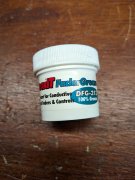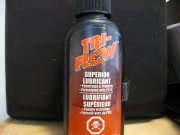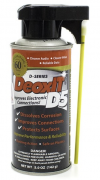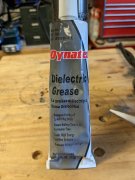Have two potentiometers from some Technics donor deck. Very, very little used, as new but still 30+ years old. They are kind a hard.
Anyway, I couldn't resist and opened one to see what can and need to be done with it. Electric side was as new. The part that need a little love is a shaft itself. Grease is hardened pretty much so I've cleaned it nicely and then the question came up: what grease to use on a plastic shaft.
Have a lithium, silicone, some mineral grease and Molykote EM-30L.
My thoughts:
Lithium and Molykote are too light, almost as Nivea hand cream.
Mineral, I think I have seen somewhere, somebody said that mineral grease have a bad impact on plastics.
Silicone, seems as a best choice of all I have. Lubed a shaft with it and it turns now much more smooth and easy.
Everybody talks about cleaning electronic part with a contact spray, but I've never seen anything about lubing a shaft. I'm wondering what's your opinions, what would you recommend.
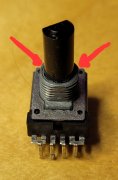
Anyway, I couldn't resist and opened one to see what can and need to be done with it. Electric side was as new. The part that need a little love is a shaft itself. Grease is hardened pretty much so I've cleaned it nicely and then the question came up: what grease to use on a plastic shaft.
Have a lithium, silicone, some mineral grease and Molykote EM-30L.
My thoughts:
Lithium and Molykote are too light, almost as Nivea hand cream.
Mineral, I think I have seen somewhere, somebody said that mineral grease have a bad impact on plastics.
Silicone, seems as a best choice of all I have. Lubed a shaft with it and it turns now much more smooth and easy.
Everybody talks about cleaning electronic part with a contact spray, but I've never seen anything about lubing a shaft. I'm wondering what's your opinions, what would you recommend.


